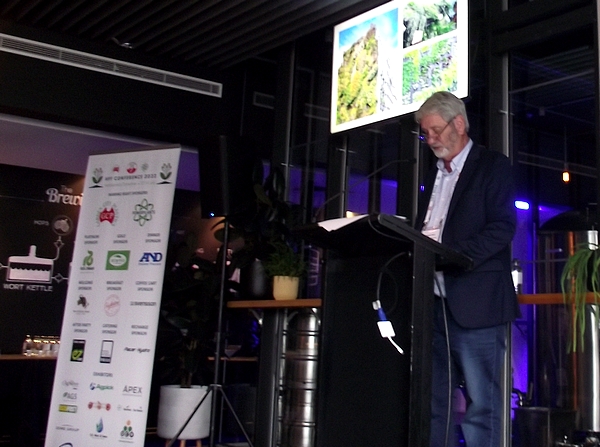



The Hydroponic Farmers Federation (HFF) conference has begun in Dandenong, Victoria, with about 210 delegates in attendance. The three-day conference began today, July 12, with a number of sessions on topics like Light and Plant Interactions, tomato market trends, and vertical farming. The trade exhibition has 22 exhibitors, and it also includes a dinner and farm tours. The state-based HFF has been in operation for 25 years. According to the industry’s president, John Elford, hydroponically produced tomatoes account for over 50% of the Australian tomato market and 25–30% of cucumber and capsicum production.
He added, “However, we are seeing that the bigger growers are actually getting bigger faster, and the smaller growers are getting a bit difficult for them.” “They are growing and, regrettably, some of the smaller producers are going out of business as a result because they have better processes and technology. Being one of the smaller growers myself, I continue to operate despite having lost two-thirds of my company to a severe storm. I am beginning to rebuild, but sometimes it doesn’t matter how much money you make; it’s more important to consider your lifestyle and the people you come into contact with. Being in this field, for me, is a very sharing and compassionate environment.”
With a 29% share of the gross value of production, Victoria leads all Australian states in agricultural production, with Queensland coming in second with 22%, according to Agriculture Victoria Chief Executive Matt Lowe. Approximately 30% of Australia’s production is in horticulture, and Victoria accounts for 27% of the country’s agricultural exports, according to him. Additionally, 50% of Australia’s exports are worth $1.6 billion. But he added that it would be wrong to deny that the agriculture and horticulture sectors have had certain difficulties. Storms, fires, droughts, and COVID-19 were additional key factors.
Modernization is a significant theme and something we continue to promote as a driver for future productivity since it is something that interests us most about the development of the industry in Victoria and how it can continue to evolve. Given the immense significance of the agricultural industry, biosecurity and protection are equally crucial, and showcasing what we do on a global scale while also marketing what we do locally will help us open up new markets. We have strong feelings about all of that.